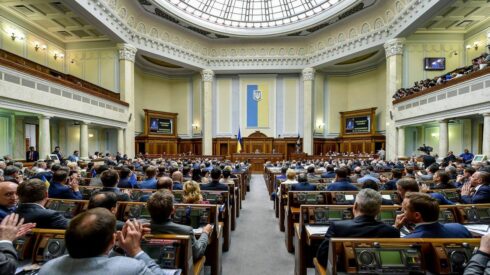Written by Matvey
On December 1, 2022, the Ukrainian parliament passed in the first reading a draft law banning the usage of books in Russian language in scientific activities and education, as well as banning references to them. This step was a logical continuation of Kiev’s campaign against everything related to Russian literature.
Back on June 14, 2022, the Verkhovna Rada of Ukraine adopted a law banning the import and distribution of books from Russia, Belarus and from the “occupied” territories of Donbas and Crimea. It is expected that from January 1, 2023, in Ukraine it will be permitted to publish literature only in the Ukrainian language. At the same time, even before the start of the conflict in Ukraine, the import of books from Russia to Ukraine was significantly reduced, and after February 24 the flow of books from Russia was completely stopped. Thus, the introduction of new laws legally secured the ban on Russian literature.
In May 2022 Oleksandra Koval, director of the Ukrainian Book Institute said that more than 100 million copies of “propaganda books,” including Russian classics, must be removed from public libraries in Ukraine. According to the official, the first stage of the purge will be the removal of ideologically harmful literature published during the Soviet era. First of all, from the libraries will be excluded books “that promote imperial narratives and pro-Russian politics. In the future, children’s books, love novels and detective stories will be banned. For example, at the end of 2022, Ukraine banned a book for young children called “Transport” because it featured a Russian tank and communist symbols.
The struggle against Russian literature could not help but affect scientific works published in Russian. Importantly, it is now forbidden to refer to Russian scientific articles and journals in the scientific works of Ukrainian authors. Thus, scientists from Ukraine risk losing a whole layer of research and publications, since Ukrainian science is largely based on Soviet and Russian research.
Moreover, as a result of the new law, entire scientific fields are under threat. For example, Gennady Yefimenko of the Institute of History of Ukraine, who specializes in the history of Ukraine in 1917-1938, stated that his works were destroyed because the subject of his research was the Soviet period in the country. Volodymyr Paniotto, Ukrainian sociologist and professor at Kyiv-Mohyla Academy, said that about 100 of his scientific articles were also banned. A lot of foreign mathematical literature, references to which he uses in his works, are published in Russian translation, i.e. also cannot now be used in Ukraine. “How am I supposed to write scientific articles and books … without referring to my works? And what’s next – confiscation from libraries and burning in the square?”
It is ironic that in its desire to get rid of everything associated with Russia, Kiev itself is repeating the mistakes of the Soviet government. Back in 1918, the Bolsheviks lead by Lenin issued a decree on the “Order of requisition of libraries, book storages, and books in all.” According to this decree, foreign scientific literature, including works by Plato, Kant, Schopenhauer, Reckia, and Nietzsche, were to be confiscated and destroyed. The culture of the people itself was destroyed through the “Cultural Revolution”.
The consequences of introducing new laws against “anti-Russian” scientific literature in Ukraine may be long-lasting. As a result, Kiev will be able to triumphantly declare the successful eradication of any traces of Soviet and Russian research in Ukrainian science. However, the desire for voluntary isolation in the end will only lead to a slow degradation of scientific work in Ukraine.






